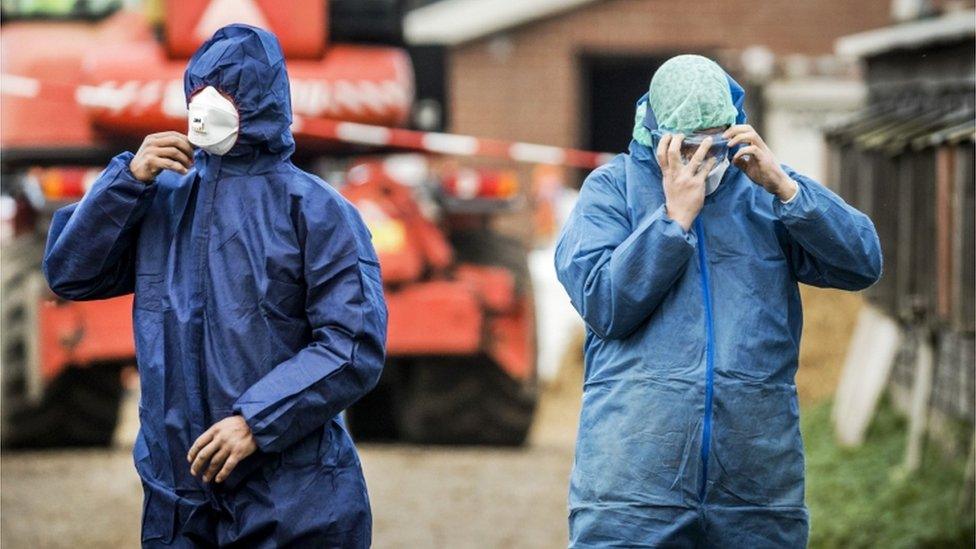Bird restrictions ordered in Scotland over avian flu
- Published

Strict regulations have been put in place in much of Europe, including the Netherlands
The Scottish government has ordered that all poultry and captive birds must be kept indoors, after an alert over avian influenza.
In a "precautionary step", it has declared an Avian Influenza Prevention Zone.
It said it was reacting to multiple reports of the disease causing deaths among wild birds in mainland Europe.
The restrictions cover the whole of Scotland and will be in place for 30 days.
Similar measures have been put in place in England.
Bird keepers - including "hobby farmers" with a small number of hens - are legally obliged to "take all practicable steps to ensure that poultry and other captive birds kept separate from wild birds".
The government said in most cases this will be by keeping birds housed.
Rural affairs secretary Fergus Ewing said: "We have declared a 30-day prevention zone as a precautionary measure to protect Scotland's valuable poultry industry, particularly in the weeks before Christmas.
"It is important to stress that there has been no cases of this strain detected in the UK.
"The Scottish government and its partners continue to monitor the situation in Europe closely and stand ready to respond to any suspicion of disease in Scotland."
'No food concerns'
Chief veterinary officer Sheila Voas added: "The risk of an HPAI incursion into poultry in the UK remains at 'low, but heightened', although for wild birds the risk has been raised to 'medium'.
"It is normal to see these viruses circulating among wild bird populations at this time of year, however the strain seen in Europe appears to be particularly virulent which is a cause for some concern.
"Keeping birds indoors helps to reduce the risk of exposure to the virus, provided that poultry keepers maintain good biosecurity on their premises and remain vigilant for any signs of disease.
"Consumers should not be concerned about eating eggs or poultry given the expert advice about food safety and human health."
NFU Scotland said the country's poultry keepers were "up to speed" on the current position and well-prepared to deal with any potential threat.
Spokeswoman Penny Johnston said: "It is clear that there is a high risk of infection in wild migratory fowl, posing a risk of cross-infection into our commercial birds. The decision taken by the Scottish government is sensible, given the risk, and producers will play their part.
"NFU Scotland will continue to monitor the situation and update producers of any changes to the risk status and advice but in the meantime, we urge all poultry keepers to comply with the restriction notice, tighten biosecurity and be aware of the potentially-increased risks from wild birds."
- Published7 December 2016
- Published27 November 2016